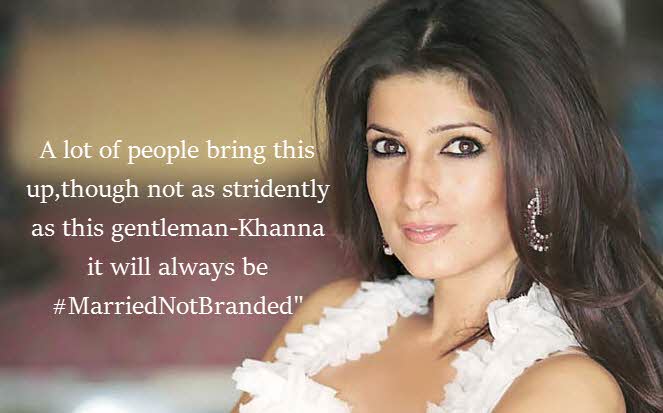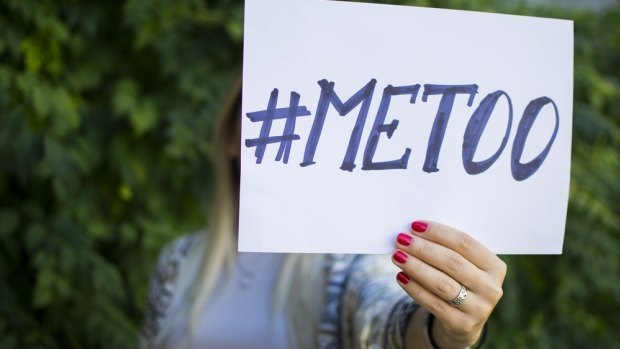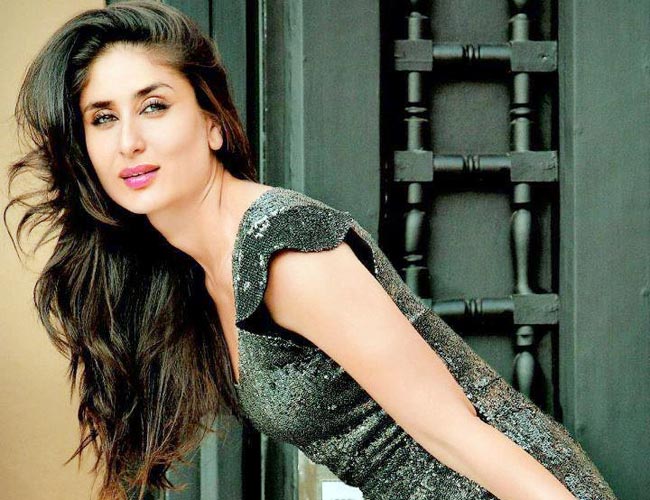Media can’t help but popularize ‘Twinkle Khanna’ with regard to her response to a sexist who kept bugging her to justify her act of not changing her surname after marriage. Her response was crisp and surely served her purpose. But did it serve the purpose of the larger good?

Let’s read her tweet first:
A lot of people bring this up,though not as stridently as this gentleman-Khanna it will always be #MarriedNotBranded pic.twitter.com/q4JzS1bzd1
— Twinkle Khanna (@mrsfunnybones) September 20, 2016
Every now and then this issue of surnames resurfaces but we Indians fail to address the core underlying problem. Every other day we come across a random person judging and questioning as to why a certain woman hasn’t taken her husband’s surname after marriage.
It started with ‘God knows who’, but when women in power position started to refuse to change their surnames, the issue received a wide spotlight. Now we can see that every other woman has started to stick to their father’s surname even after marriage. And funnily, it has become a feminist act and claims to have empowered woman (‘God knows in what sense’).

When we do an intensive study of the concept of feminism, which we very well need to do in the contemporary times, we will realize, it started as a women liberation movement but went on to become a multifaceted crusade.
Feminism also saw a period when it was associated with lesbianism and to an ideology which wanted to establish women supremacy on the basis of caring attitudes, reproductive features and what not. But fortunately, we are past that phase. Contemporary feminism as an umbrella covers opinions of all the subaltern groups, be it transgenders or any other suppressed minority.
Feminism has ceased to be just an ideology and become more of a way of life against the contemporary patriarchal way of life. Patriarchy, as we all know, not only suppresses its women but also defines and constricts its men. Feminism seeks to eliminate all such shackles. 
Keeping all of these in mind, what Twinkle Khanna did, appears to be an ignorant and half-hearted superficial effort.

What I mean is that the surnames that most Indians attach to their names or try to hide from their names, is a symbol of their status in the social hierarchy. And although it might not affect the lives of the high-born, it surely shakes the confidence and dignity of the lower castes and the Dalits.
So, how does feminism, as an alternative theory, in India supposed to deal with such an exploitative institutions?

“It seems to me, that this, too, is how memory works. What we remember of what was done to us shapes our view, molds us, sets our stance. But what we remember is past, it no longer exists, and yet we hold on to it, live by it, surrender so much control to it. What do we become when we put down the scripts written by history and memory, when each person before us can be seen free of the cultural or personal narrative we’ve inherited or devised?
When we, ourselves, can taste that freedom.”
― Rebecca Walker
Rebecca Walker, a third wave feminist, puts it rightly that humans have a tendency of blindly following the conventions of the past even when they are no longer relevant and are rendered useless. That has exactly been the case with caste in Indian society. Caste has become an omnipresent institution in our lives and we hardly realize, as happened in this case, that our solution lies in eradicating this highly unproductive system.
My appeal to all those women out there, who hold the power and privilege to speak on behalf of the oppressed and suppressed, is that they become the harbingers of change. Your respond should serve the larger good (in case you really want to become the face of empowerment, which you end up becoming anyway *thanks to the media*).
Feminism seeks to voice those alternate stances that have been suffocated since time immemorial. Now is the time when the winds are favoring your sails, liberate yourself along with those who need to be liberated. And why wouldn’t you if you can?

I know, right?
So if you are done with #MarriedNotBranded , it’s time to #eliminatesurnames







Discussion about this post